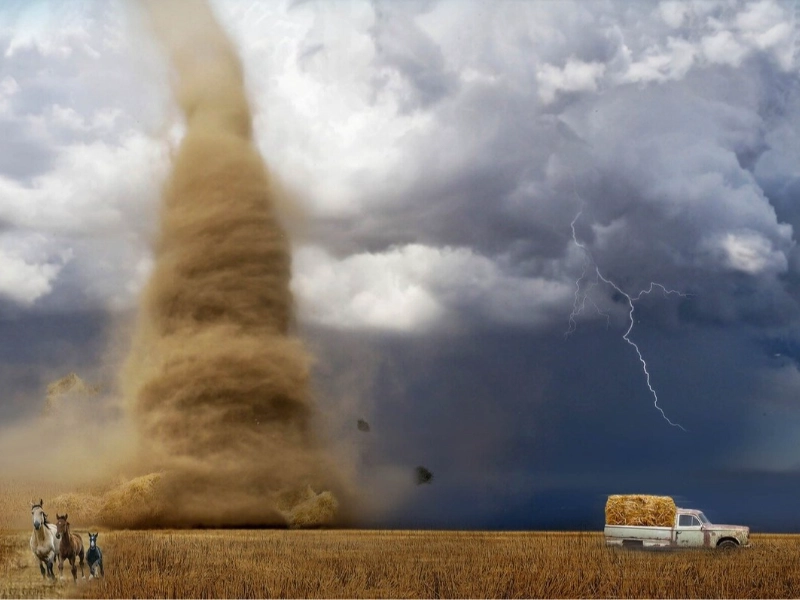15 Unexpected Ecological Impacts of Tornadoes: The 10th One Will Surprise You!
10. Unexpected Biodiversity Hotspots

The most unexpected ecological effect of tornadoes is maybe their ability to produce hotspots of biodiversity in their path. Although the immediate aftermath of a tornado might seem to be absolutely desolate, over time these disrupted places can become rich, varied ecosystems. More species can be supported by the mosaic of habitats produced by tornado damage than by the original, more uniform forest: clearings, edge habitats, and areas of thick regrowth all sustain different species. The post-tornado landscape's more structural complexity offers niches for species that would have been nonexistent or scarce in the pre-disturbance habitat. For cavity-nesting birds and bats, for example, the development of snags—standing dead trees—offers vital habitat. The higher light penetration in recently created clearings makes it possible for shade-intolerant plant species to flourish, hence perhaps boosting the total plant diversity. The disruption might also provide chances for the founding of rare or threatened species needing certain circumstances for germination or growth. Sometimes these tornado-generated habitats serve as refugia for animals facing more heavily urbanized or regulated environments. These regenerating ecosystems' dynamic character—constantly altering structure and composition—allows a moving assemblage of species across time. This phenomena exposes the need of natural disturbance regimes in preserving biodiversity and questions conventional ideas of ecological stability. Long-term research of tornado-affected regions has shown that these locations can sustain greater degrees of biodiversity for decades following the disturbance, therefore highlighting the ongoing ecological legacy of these strong storms. The development of these hotspots following such catastrophic occurrences reminds us strongly of the resilience of nature and the intricate, sometimes contradictory responses ecosystems take to stress.
Advertisement
You May Like

